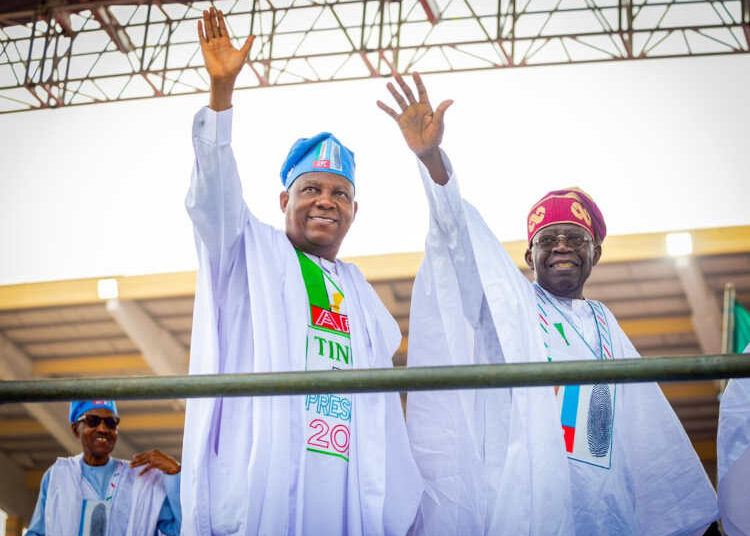Popular Think Tank, The Independent Media and Policy Initiative (IMPI) has said that President Tinubu took a big political gamble by going ahead with economic reforms that usually take long to manifest in positive benefits.
In a policy statement signed by its Chairman Dr Omoniyi Akinsiju, IMPI carried out a risk assessment of the Tinubu reforms and concluded that the President deserves credit for going ahead with the policies inspite of the possibility of the opposition capitalizing on the attendant short-term pains to drive its agenda.
It said: “In light of these challenges, it is worth assessing the political risk Nigeria’s President, Bola Ahmed Tinubu, took in decisively implementing economic reforms from the outset of his administration on 29 May 2023.
“The political costs of reforms are substantial in countries like Nigeria, where existing political institutions may not align with international best practices. In democratic systems, political cycles often limit politicians’ ability to implement long-term reforms due to the electoral process every 4-5 years.
“As a result, significant reforms, which require time to yield visible benefits, are often pursued incrementally. In this context, the 22-month-old Tinubu administration must navigate political pressure and criticism from politicians and influencers.
“These critics often position themselves against the administration to capitalise on perceived shortcomings, sometimes misrepresenting ongoing reforms as damaging to Nigerian citizens’ economic fabric and standard of living.
“Despite these challenges, we commend President Tinubu for his steadfast commitment to advancing economic reforms amid substantial opposition over the past 22 months.
“The administration has demonstrated a dedication to its reform agenda despite the lack of immediate incentives for engaging in long-term change, which is characteristic of developing nations. This requires significant statesmanship and leadership, akin to navigating uncharted territories.”
IMPI noted that only national interest could make an administration go ahead with reforms that are risky enough to lead to electoral loss.
“Against evident resistance to economic reforms, President Tinubu has shown exceptional perseverance, driven by a forward-looking vision for Nigeria’s economy that prioritises national interest over personal or electoral gains.
“This commitment is particularly notable considering the conventional approach of starting reforms with minor and more manageable steps to build success stories and political support.
“Reforms are typically categorised into first-generation reforms, focusing on macroeconomic stabilisation and liberalisation, and second-generation reforms, which deal with institutional changes and public service improvements.
“But the Tinubu administration has embarked on first- and second-generation reforms simultaneously, demonstrating its comprehensive engagement with economic reformation,’it added.
The policy think tank also provided insights into the nature of the Tinubu reforms as well as some of the earliest benefits midway into the administration’s term in office.
“Despite the political opposition and other sundry interest groups sniping at the reform implementation, our impact analysis implicates an emerging and truly liberalised economy, which is an accomplishment of one of the primary objectives of the reform agenda.
“This is exemplified in Nigeria’s total trade exports, which surged to a high of $50.4 billion in 2024, driven by exchange rate depreciation due to the harmonization of foreign exchange windows and the elimination of fuel subsidies, the two flagship foundational policies of the reform agenda.
“Data from the National Bureau of Statistics (NBS) show that Nigeria recorded a total trade volume of N138 trillion, the highest in the country’s history, representing a 106 per cent increase compared to the previous year.
“This translates to $89.9 billion in dollar terms, indicating a 22.1 per cent surge in 2024 when dollarised. It also rebounded from the 35 per cent decline in 2023 when the government introduced the more market-driven exchange rate.
“Under the facilitation of the Tinubu administration, Nigeria is redeeming its image in the perception of foreign investors. Over the years, concerned investment experts lamented that it is a tragedy that a country of more than 220 million people has been unable to attract more than $2 billion worth of net Foreign Direct Investment (FDI) inflows annually in recent years.
“This is changing: when foreign investment inflow into the country in 2024 is finally tallied, Nigeria may have received about $21 billion worth of foreign investment, with only the Nigeria National Petroleum Corporation Limited (NNPCL) attracting $17 billion.
“Also, total FAAC allocations jumped to N15.26tn in 2024, a 43% increase from the previous year. Again, the surge can be attributed to the Tinubu administration’s fiscal reforms, including removing fuel subsidies and exchange rate adjustments, significantly boosting oil revenue remittances,” it explained.
IMPI is however concerned that inspite of falling food prices in recent months, the agriculture sector has continued the trend of distorted growth in the last five years, slumping from 3.42 percent in 2020 to 1.74 percent in 2024.
The policy group expressed hope that recapitalization of the Bank of Agriculture (BOA) and the recently sealed Green Imperative Project (GIP) deal with Brazil, targeting small scale farmers across the 774 local government areas will help boost growth in the sector
End














